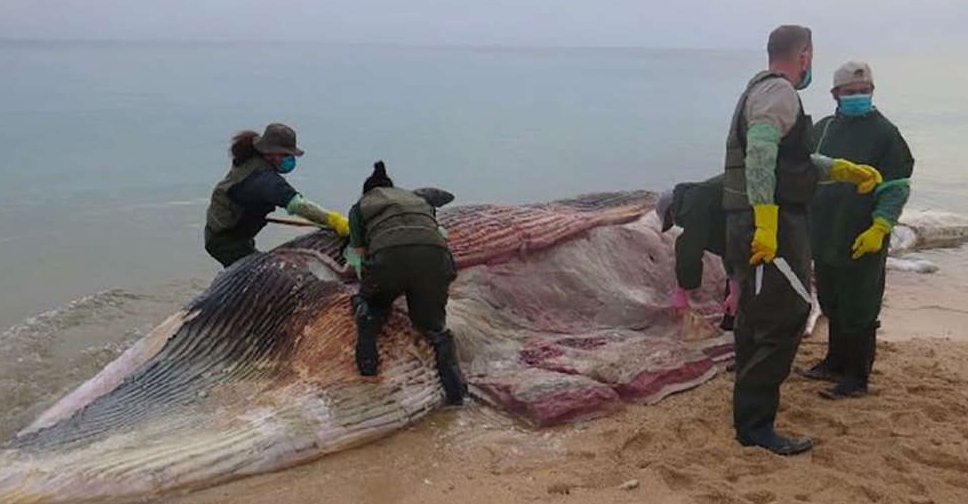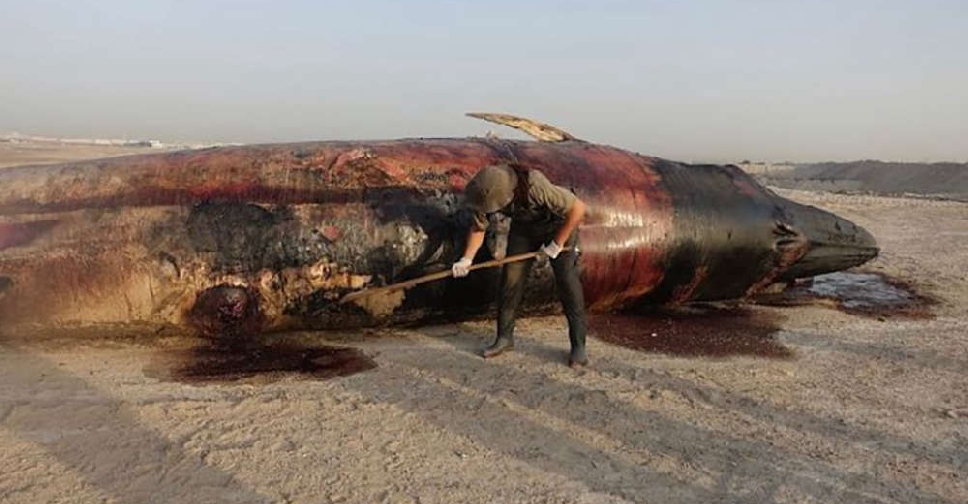
The Environment and Protected Areas Authority in Sharjah (EPAA) has revealed the results of a scientific study, considered to be the first of its kind in the Middle East, concerning the analysis of persistent organic pollutants and heavy metals in the tissues of seven dead whales.
The study was applied to seven dead whales found along the coasts of Sharjah, Dubai, Umm Al Quwain, and Khorfakkan city, comprising of five Bryde's Whales, one Blue Whale, and one Humpback Whale.
Hana Saif Al Suwaidi, EPAA Chairperson, said the tissue analysis of these whales in terms of persistent organic pollutants and heavy metals, the research team identified several causes leading to the deaths of whales. Most notable were collisions with ships and large vessels and entanglement with fishing gear, particularly the sturdy ropes in which whales become ensnared, leading to parts of their bodies being severed, such as tails and fins.
Additionally, the whales are affected by the plastic waste that fills the depths of the seas as they consume these bags and empty containers with their food, resulting in the blockage of their digestive tracts and, subsequently, their death.

The study, conducted in collaboration with the American University of Sharjah and Zayed University, falls within Sharjah Strandings Response Programme and was overseen by the Scientific Research Department and the Breeding Centre for Endangered Arabian Wildlife team of the EPAA, along with a research team consisting of eight researchers and experts in marine life.
The study took close to seven years to complete.

 Dubai unveils new quality of life strategy
Dubai unveils new quality of life strategy
 UAE survey to address health and nutritional challenges
UAE survey to address health and nutritional challenges
 UAE President awards Indonesian defence minister Order of Zayed
UAE President awards Indonesian defence minister Order of Zayed
 Abu Dhabi to launch the region's first biobank
Abu Dhabi to launch the region's first biobank
 Abu Dhabi markets free of non-Halal Mars products
Abu Dhabi markets free of non-Halal Mars products
 ERC unveils new phase of projects for earthquake-affected Syrians
ERC unveils new phase of projects for earthquake-affected Syrians
 Watch: Smart marine scraper keeps Dubai's waters clean
Watch: Smart marine scraper keeps Dubai's waters clean
 Muslim Council of Elders commends UAE's rejection of Israeli PM's statements
Muslim Council of Elders commends UAE's rejection of Israeli PM's statements



